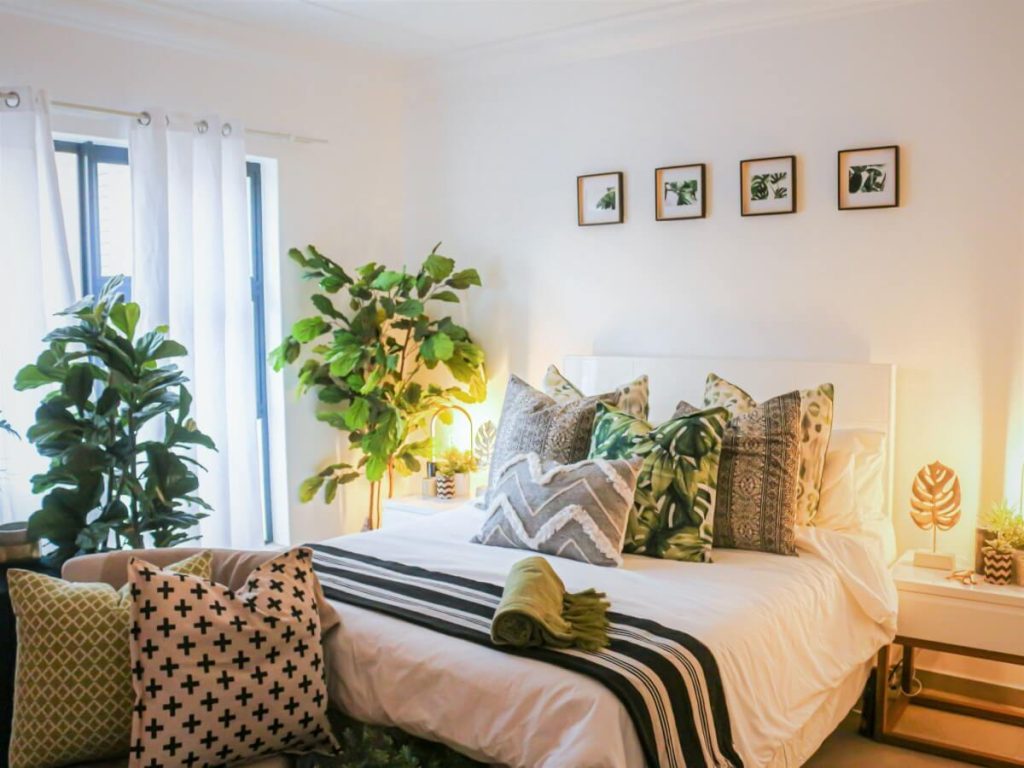Organic Bedroom vs. Organic Modern Bedroom: What’s the Difference?
Understanding the key differences between an organic bedroom and an organic modern bedroom, so you can create the perfect eco-friendly bedroom that suits your style and needs.
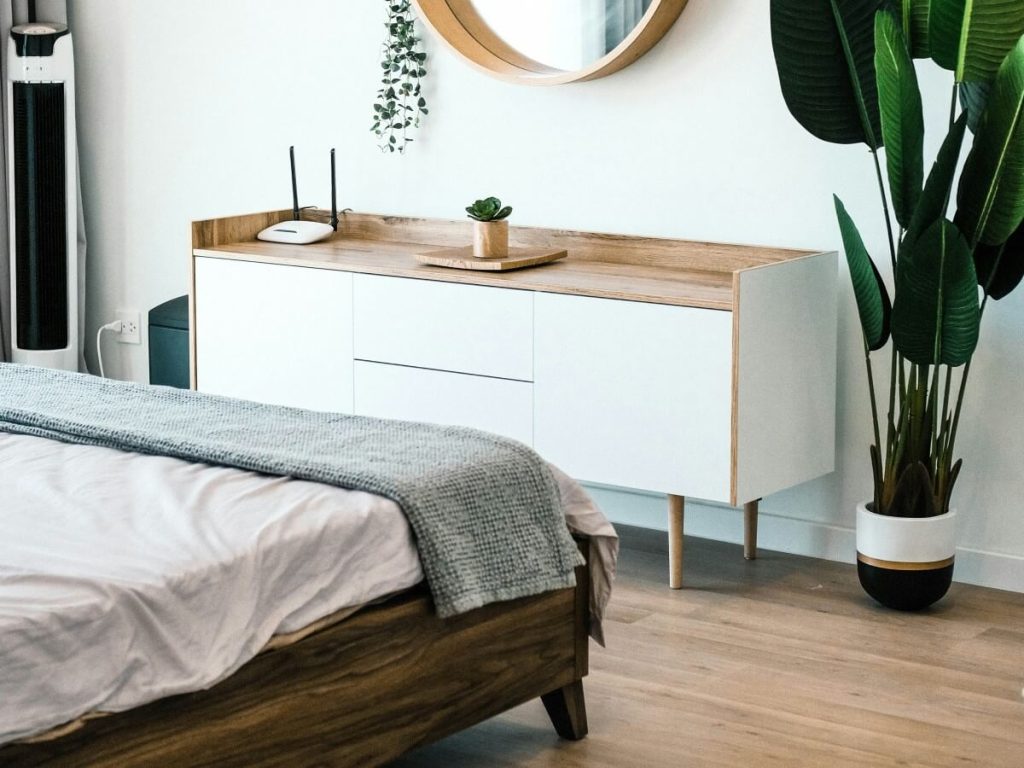
When deciding how to design your bedroom, you might encounter two popular styles: organic bedroom and organic modern bedroom. While both styles prioritize natural materials and sustainability, they offer distinct atmospheres. Here, we’ll compare these styles so you can choose the one that fits your space best.
Table of Contents
What is an Organic Bedroom?
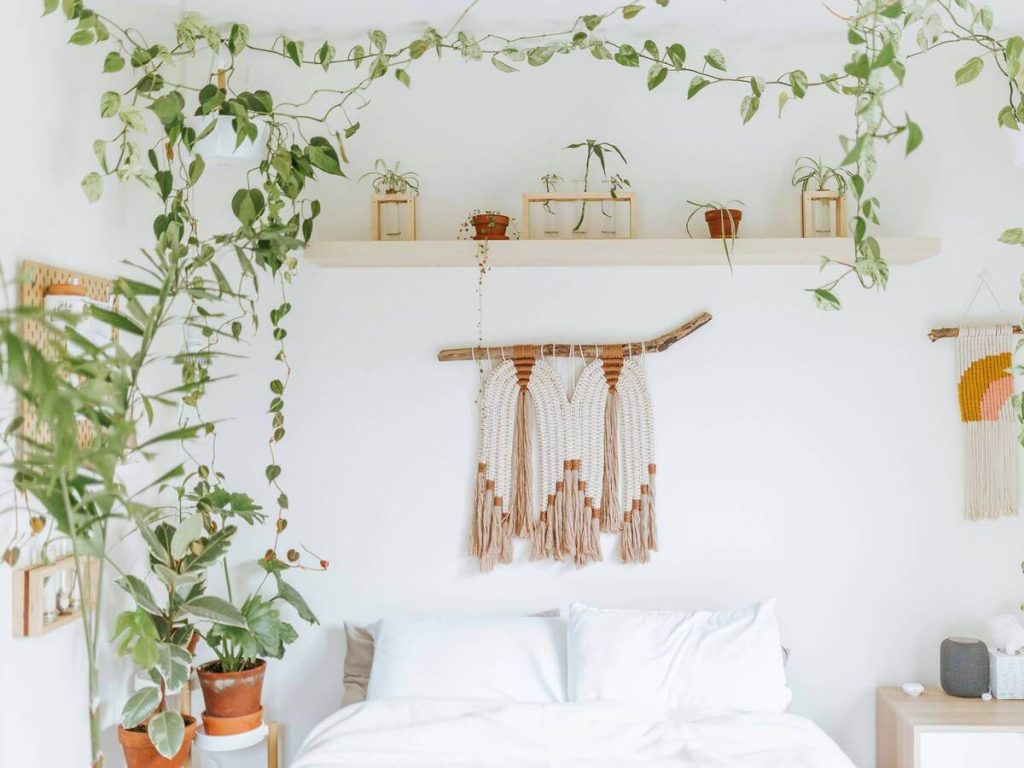
An organic bedroom emphasizes natural, non-toxic materials, designed to create a peaceful and health-focused space. This style highlights sustainability, comfort, and a connection to nature.
Key Features of an Organic Bedroom:
- Natural Materials: Use materials like organic cotton, linen, wool, wood, and stone. These materials are untreated by chemicals, making them healthier for the environment and your health.
- Cozy and Earthy Feel: Expect soft, earthy tones and warm textures. Plush bedding, woven rugs, and wooden furniture help create a nurturing space.
- Comfort First: The organic bedroom focuses on comfort, using soft textiles, thick blankets, and natural rugs. It’s designed as a cozy retreat for relaxation.
Pro Tip:
According to Harvard Health, organic bedrooms also promote better sleep by reducing the exposure to harsh chemicals that may interfere with your health.
What is an Organic Modern Bedroom?
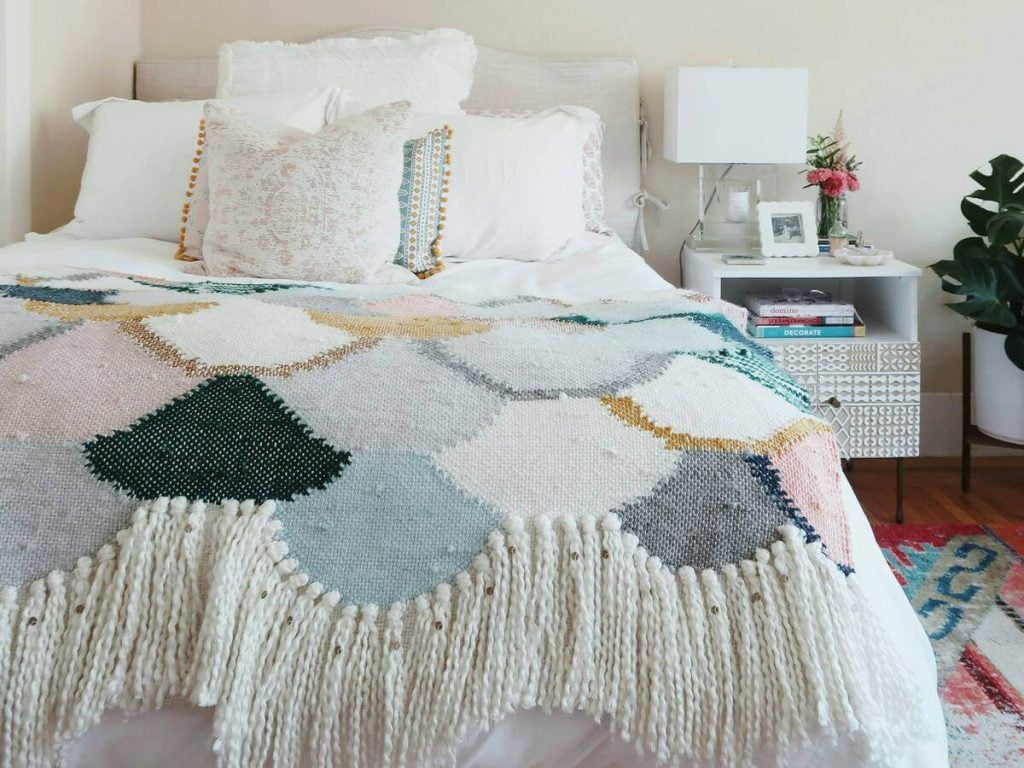
An organic modern bedroom blends natural materials with clean, minimalist lines, giving the room a sleek but sustainable aesthetic. It’s an excellent choice for those who appreciate the balance of nature and modern design.
Key Features of an Organic Modern Bedroom:
- Natural Meets Minimalism: You’ll see materials like linen, stone, and wood paired with sleek, modern furniture. This style focuses on simplicity, removing clutter for a streamlined look.
- Neutral, Sleek Colors: The color palette is mostly neutral—think whites, beiges, and muted tones. The room feels clean, open, and harmonious.
- Functional Design: Organic modern bedrooms emphasize functionality. Expect multipurpose furniture and smart storage solutions that keep the room airy and organized.
Pro Tip:
According to The Environmental Protection Agency (EPA), using low-emission furniture and décor made from organic materials in an organic modern bedroom can also improve indoor air quality.
Comparison: Organic Bedroom vs. Organic Modern Bedroom
| Organic Bedroom | Organic Modern Bedroom | |
| Aesthetic | Cozy, warm, and inviting | Sleek, minimal, and elegant |
| Color Palette | Earthy tones (warm browns, greens, neutrals) | Neutral tones (whites, beiges, muted grays) |
| Materials | Organic cotton, wool, wood, stone | Linen, wood, stone, minimal textures |
| Furniture | Plush, comfortable with natural accents | Minimalist, sleek designs |
| Décor | Layered textiles, woven rugs, plants, baskets | Simple, purposeful, statement lighting |
| Textures | Soft, rustic textures (wool, wood, jute) | Smooth finishes with occasional rough elements |
| Overall Feel | Warm, personal, nurturing | Clean, airy, refined |
| Best For | Cozy retreats, those who value warmth and texture | Minimalist spaces, those who value simplicity |
| Space Efficiency | Works well in larger or cozy spaces | Works best in smaller, minimalist spaces |
| Focus | Comfort, connection to nature | Balance of style and function |
Both styles value sustainability and eco-friendly design, but they differ in aesthetic, color, and overall feel. Here’s how the two compare:
1. Aesthetic and Style
- Organic Bedroom: Cozy, earthy, and inviting. This style creates a warm, homey atmosphere with a “lived-in” look that invites relaxation.
- Organic Modern Bedroom: Sleek, minimal, and elegant. This style balances clean lines with natural textures, offering a more polished, refined feel.
2. Color Palette
- Organic Bedroom: Earthy tones dominate—warm browns, soft greens, and deep neutrals. The palette is varied, creating a rich, warm environment.
- Organic Modern Bedroom: Sticks to neutrals like whites, beiges, and muted grays. Accents are subtle, often limited to wood or stone tones.
3. Furniture and Décor
- Organic Bedroom: Features plush, comfortable furniture with a focus on natural elements. Wicker baskets, woven rugs, and indoor plants are common.
- Organic Modern Bedroom: Prioritizes minimalist furniture with clean lines. Décor is minimal and intentional, focusing on key pieces like statement lighting or a feature wall.
4. Textures and Materials
- Organic Bedroom: Incorporates a variety of textures, such as wool blankets and wood flooring. The goal is a tactile, inviting environment.
- Organic Modern Bedroom: Uses textures sparingly, mixing smooth finishes with rougher elements like jute rugs or linen curtains.
5. Overall Feel
- Organic Bedroom: Warm, personal, and nurturing. This style is all about creating a space where you can unwind and feel comfortable.
- Organic Modern Bedroom: Clean, airy, and elegant. It’s a perfect style for those who appreciate simplicity and want a curated, polished look.
How to Choose Between Organic and Organic Modern

Still unsure which style is right for you? Here’s a quick guide:
- Choose an Organic Bedroom if:
- You prefer a cozy, earthy space with rich textures.
- You want a bedroom that feels warm and inviting.
- You enjoy natural, organic elements in your décor, like wooden furniture and woven rugs.
- Choose an Organic Modern Bedroom if:
- You prefer a minimalist, modern aesthetic with natural materials.
- You want a clean, sleek look with neutral tones.
- You value functionality and prefer a less cluttered space.
How to Blend Both Styles
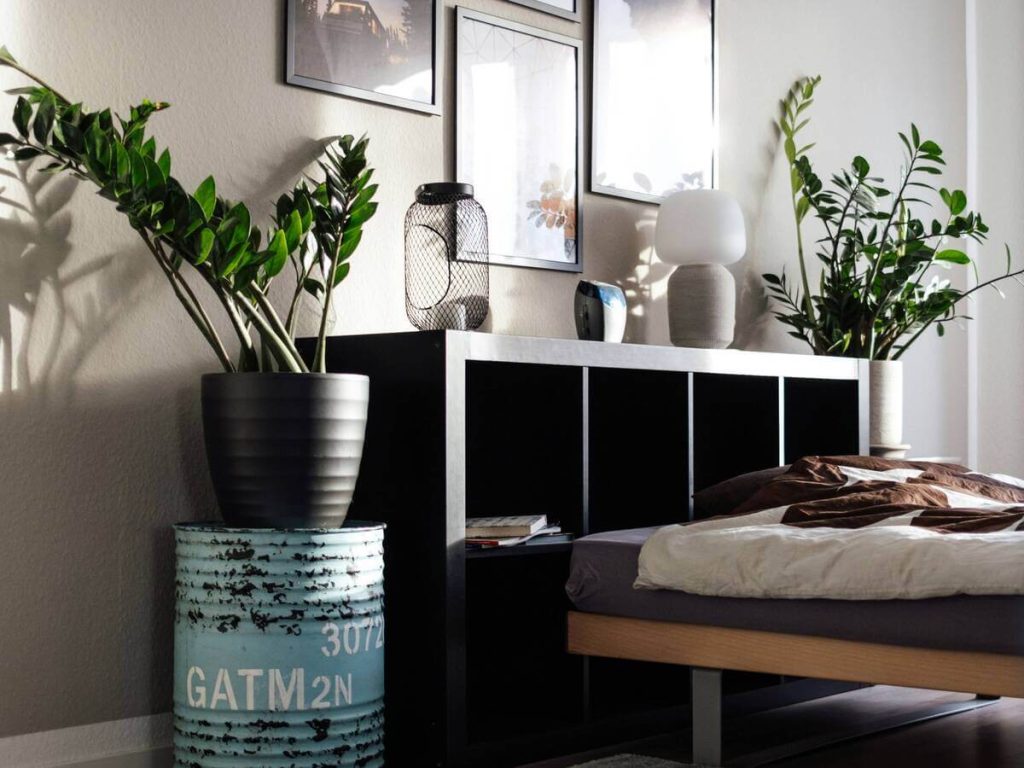
Can’t decide? You don’t have to choose just one! Here are some tips for blending both styles in your bedroom:
- Mix Textures: Combine sleek modern finishes with soft, organic materials. For example, a linen bedspread can be paired with a modern, minimalist bed frame.
- Neutral Base with Earthy Accents: Start with a neutral color scheme, then add earthy tones in your accessories such as natural wood nightstands or a cozy wool throw.
- Simple but Warm Décor: Use modern design’s minimalist approach, but soften the space with cozy elements like a woven rug or plush pillows.
Benefits of Each Style
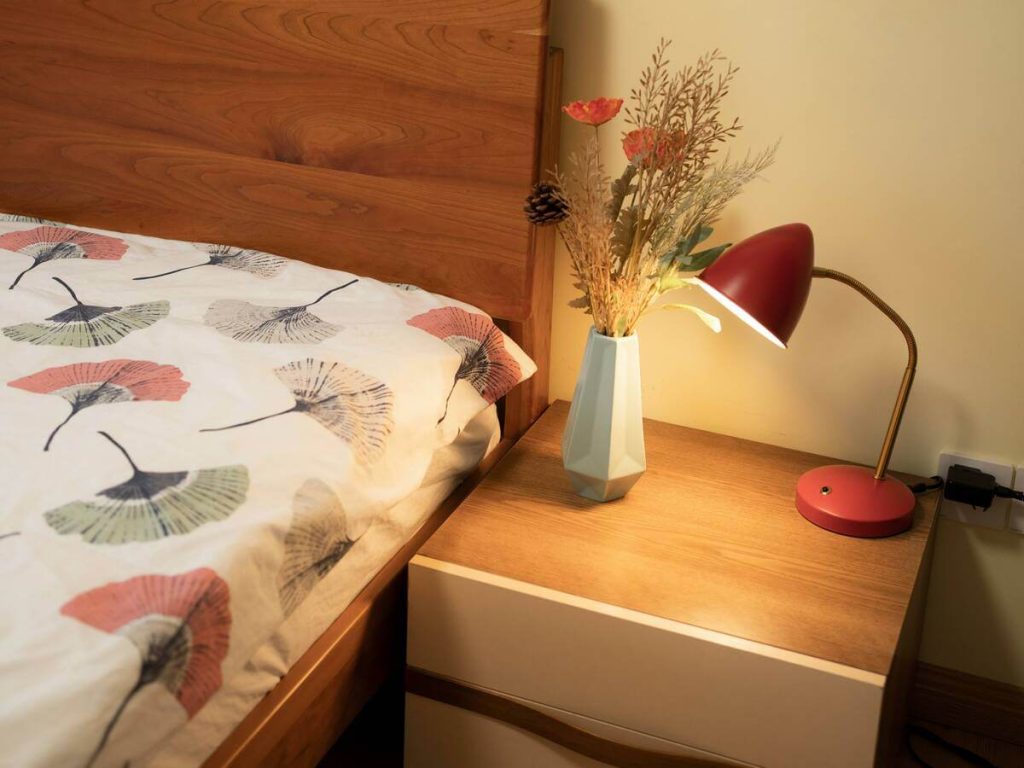
- Organic Bedroom: If your priority is comfort and a sense of natural warmth, this style delivers. It’s about creating a space that nurtures both body and mind. Materials like organic cotton and wool also contribute to better indoor air quality.
- Organic Modern Bedroom: This style is great for those who love the balance of modern design and eco-conscious living. Its minimalist approach makes it ideal for smaller spaces, while still focusing on sustainability.
Pro Tip:
According to Mayo Clinic, opting for organic materials can also reduce allergens in your home.
Conclusion
Both organic and organic modern bedrooms offer eco-friendly and aesthetically pleasing options for creating a relaxing sanctuary. The organic bedroom leans into warmth, comfort, and natural textures, making it perfect if you love a cozy, retreat-like atmosphere. On the other hand, the organic modern bedroom brings a clean, minimalist aesthetic with sleek lines while still emphasizing sustainability.
FAQs
Q1: What is the biggest difference between an organic and organic modern bedroom?
The biggest difference is the aesthetic. Organic bedrooms focus on warmth and comfort, while organic modern bedrooms offer a sleek, minimalist look.
Q2: Can I blend both styles?
Yes! Mix modern design’s clean lines with organic elements like wood and wool for a balanced look.
Q3: Is one style more eco-friendly than the other?
Both styles emphasize sustainability, so the eco-friendliness depends on the materials you choose, such as FSC-certified wood and organic textiles.
Q4: Which style works better in small spaces?
Organic modern bedrooms tend to work better in small spaces due to their minimalist approach, which reduces clutter and emphasizes functionality.
Q5: What materials should I prioritize for an eco-friendly bedroom?
Focus on organic cotton, linen, wool, and FSC-certified wood. These materials are non-toxic, durable, and better for the environment.



